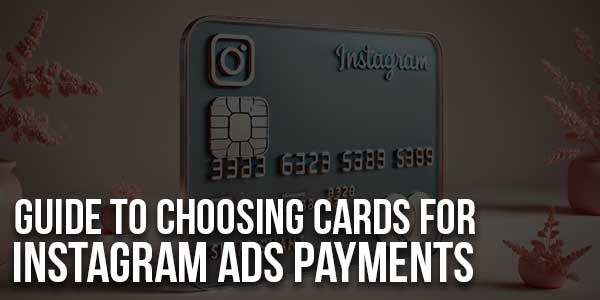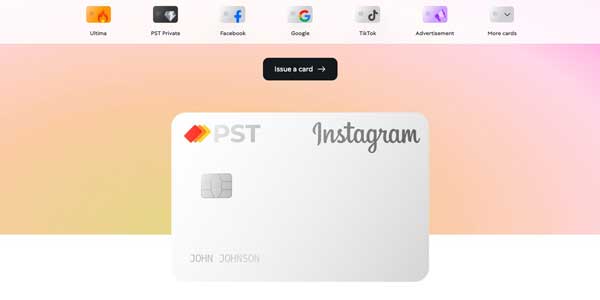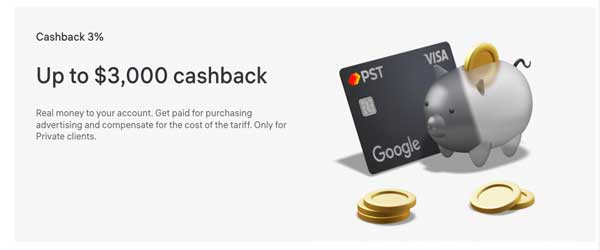
Fast and secure transactions on advertising platforms are made possible by virtual cards. However, not all cards are suitable for ad payments. Instagram is owned by Meta, which sets fairly strict requirements for payment tools. Payments may be rejected, and your ad account could be blocked if you use an unsuitable card. In this article, we’ll discuss which card to choose for paying for Instagram Ads. You’ll find an overview of virtual cards from PST and a guide on selecting the right cards in the sections below.
Table of Contents
PSTNET: Virtual Cards for Instagram Ads:
PSTNET is a financial service that issues various types of virtual Visa and Mastercard cards. These can be used for digital subscriptions, apps, online shopping, and travel.
For media buying, the service offers special debit and credit cards, which are tailored to the platform where they will be used. PSTNET cards for Instagram ads meet all of Meta’s requirements. Additionally, since PSTNET is designed with media buyers in mind, all of its cards are easy to use, offering competitive rates and fees.
With these advertising payment cards, you won’t have to worry about transaction fees, withdrawal charges, declines, or frozen card operations. Top-up fees start at 2%.
In the user’s dashboard, there are special tools for managing finances. You can add new users, delegate tasks, and assign roles to team members. Each card can also have a spending limit. Detailed reports on all financial transactions are available to PSTNET users.
Additionally, the service provides its own BIN checker, “Pulse.” This free tool helps minimize declines by giving extended card information in seconds. Its up-to-date database includes over 500,000 BINs from a wide variety of cards. For PSTNET cards, you can find out the average spend per card, billing thresholds, and, most importantly, the approval rate for transactions.
Card Features:
- 25+ unique BINs from US and European banks: Minimising the risk of triggering a risk payment
- 18 crypto coins available for card top-up: Supports BTC, USDT TRC 20, ERC 20, and others
- Additional top-up methods: SWIFT/SEPA bank transfers, other Visa/Mastercard cards
- 3D Secure Technology: Ensures payment security
- Two-factor authentication: Guarantees the security of user data
- Telegram bot: Allows you to receive 3D Secure codes and notifications about service updates
- One-step registration: You can sign up using your Apple ID, Google account, Telegram, WhatsApp, or email
- 24/7 customer support: Support agents respond instantly via Telegram, WhatsApp, or live chat
For media buyers, the service has created the PST Private programme. Through this, you can issue up to 100 free cards per month and earn 3% cashback on advertising expenses. No need to verify ad spending — just select the right plan on the service’s website. The available packages are Large, Medium, Small, and Extra Small.

Criteria for Choosing a Virtual Card for Instagram Ad Payments:
Compatibility with Meta platforms:
Instagram and Facebook may reject transactions due to suspicions of fraud. To reduce the risk of declines, choose cards issued by major banks in the US, Europe, or the UK. These countries are considered reliable, and payments from such cards are less likely to be declined by Instagram.
High transaction success rate (low decline percentage):
The higher the success rate of transactions, the more stable your ad campaign will be. Make sure the cards you’re considering have been used for Instagram ad payments before. A BIN checker or feedback from your colleagues can help with this.
Top-up and currency conversion:
Instagram accepts payments in US dollars. If you work with other currencies, opt for cards with low currency conversion fees. Also, pay attention to the top-up conditions—the easier it is to fund the card, the better.
Security technologies:
Payment security Instagram requires that cards meet security standards, meaning they should be equipped with 3D Secure and two-factor authentication. Virtual cards with these technologies are less likely to cause payment issues and help protect your ad account from being blocked.
Budget management:
Some virtual cards allow you to set transaction limits and receive payment notifications. This helps you control expenses and stay within your budget.
Support:
It’s impossible to completely avoid payment issues. If your card is blocked or a payment is declined, it’s important to have access to round-the-clock support. A quick response from your card provider can help you avoid downtime in your ad campaign.
User reviews:
Read reviews from other media buyers. This will help you understand how reliable the service and its cards are, and how often they’re declined for Instagram ad payments.
Over 25% Growth in Instagram’s User Base Expected by 2028:
In 2024, Instagram remains one of the largest digital marketing platforms in the world, and its influence continues to grow. According to forecasts, the number of users will steadily rise between 2024 and 2028. Statista reports that the number of real Instagram accounts will increase by 361.1 million (+25.68%). By 2028, the total number of Instagram users is expected to reach 1.8 billion, setting a new record.
It’s clear that over the next three years, Instagram Ads will continue to strengthen as a media buying platform. With the growing user base, competition among advertisers will intensify, making ads more expensive. Not only will you need to refine your targeting and creatives, but time is also of the essence. Virtual cards will ensure the stability of your advertising campaigns.
We hope this guide helps you choose the best payment tools for your needs.

















Be the first to write a comment.